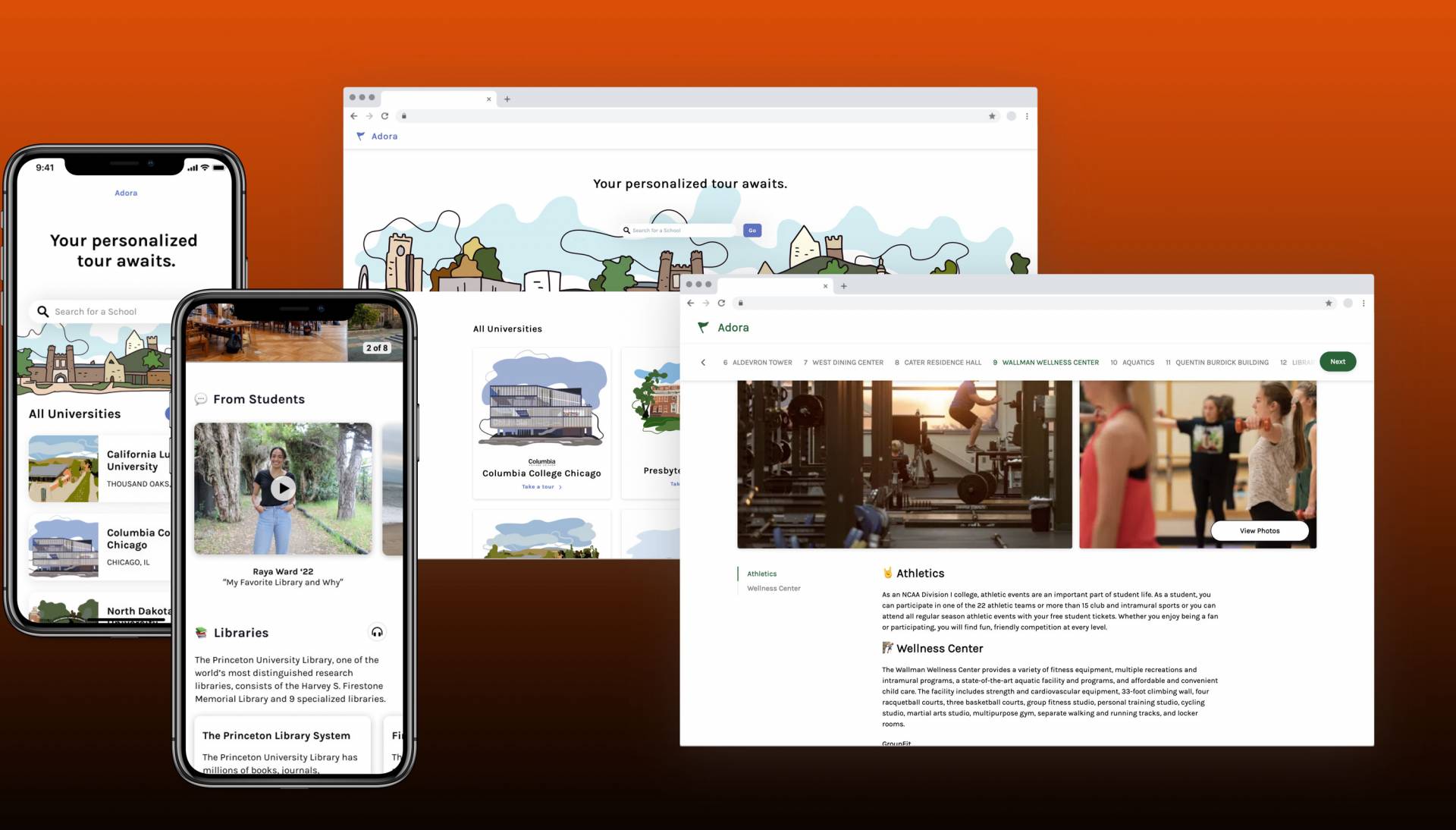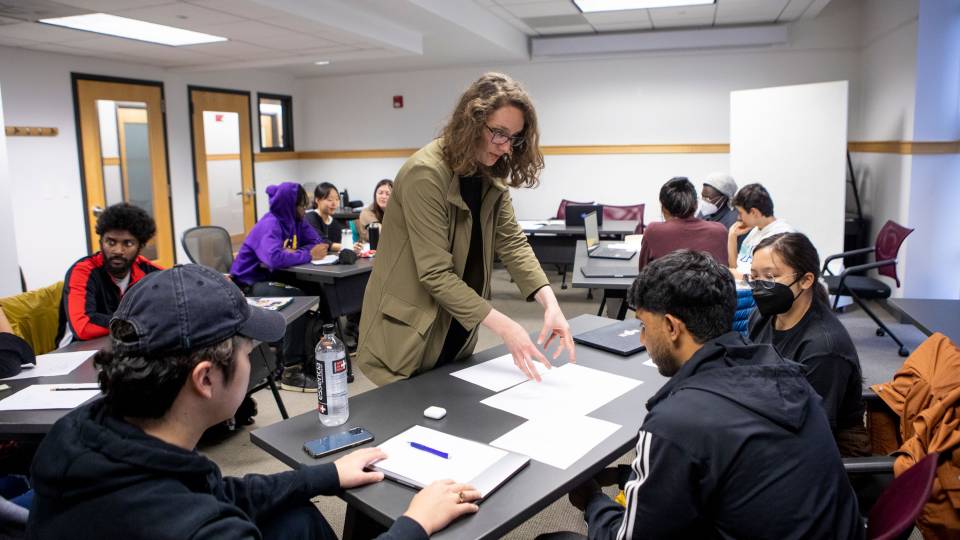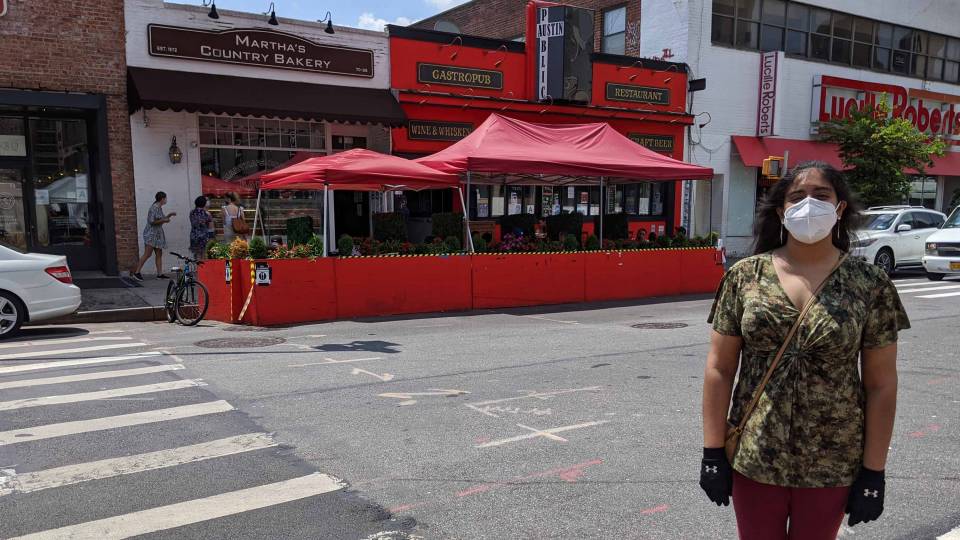Princeton University was not on junior Raya Ward's radar when she was deciding where to study. A spur-of-the-moment Orange Key tour — her mother's suggestion en route from their home in Georgia — shot Princeton to the top of her list. "A huge consideration for me was financial aid," Ward said. "And my tour guide spent at least ten minutes explaining the incredible support Princeton offers."
On the flip side, when Ron Miasnik invited a hometown friend to visit Princeton and take a tour, his friend did not hear about his academic interests.
That was when Miasnik — then a first-year student, now a junior — realized the importance of a personalized college tour experience, which motivated him to reach out to Emily Crosby, assistant dean of events and visitor management in the Office of Admission, to find a solution.
For the next year and a half, Miasnik, a computer science concentrator, threw himself into designing and programming an online, personalized tour platform, joining forces with Ward and Joseph Rubin, also a junior concentrating in computer science. Together, and with support from many offices and faculty on campus, the team turned their idea into a company: Adora.

Princeton University juniors (left to right) Ron Miasnik, Joseph Rubin and Raya Ward are the founders of Adora, a digital campus tour platform now available at colleges nationwide.
When the pandemic hit, their nascent service took off, signing on Princeton and many other schools. To keep up with demand as well as their academic work, they sold the company and now work as its senior executives.
Ward, a tour guide herself, said the traditional college visit is one-size-fits-all — hit or miss for inspiring the kind of 'aha' moment she had. "I give the exact same tour to everyone,” she said. "Honestly, when you have a crowd of 20-plus people made up of potential students and their parents, there really is no room to personalize the experience."
Adora creates a college tour tailored to students' interests and needs. It works for both in-person and virtual tours by combining student stories, augmented reality geotags and multimedia content. Greg Davies, CEO of Full Measure, the company that acquired Adora, said in a news release, "We have been closely following the campus tour space for years, and Adora is the first technology that actually improves the tour experience.”
Miasnik said the platform's initial purpose was to enhance and customize on-campus visits, but the pandemic changed everything. "When COVID hit, we thought we would have to hit pause for a while. Then Princeton reached out to us saying that they didn't know when they would be able to offer a traditional in-person tour experience again," he said. "If we could build the platform to be fully remote, our solution could become Princeton's entire visit experience!"
Adding the remote component to their product also aligned with the team's goal of making colleges and universities more accessible to a greater diversity of students, especially those who can't afford to travel from school to school, are navigating the college application process independently or are international students facing travel restrictions.
Ward said she had little interest in entrepreneurship, and that she did not see people like herself represented in that space. "I am a creative and a woman of color, and I felt entrepreneurship was not my world," she explained. Or so she thought.
Ward, who created an independent major in human-computer interaction design, used her design skills to help solve a problem she saw as a tour guide. "I cared about Princeton, I cared about college access, and so I became an entrepreneur almost against my will," she said. Making college accessible to first-generation, low-income students has been her motivating force.
The team was not thinking of bringing their technology to market so soon, but the pandemic provided a critical turning point to reach schools struggling to maintain a tour experience. While quarantined throughout the world, the team pivoted, redesigned and delivered their product. Within a few months, they had Princeton plus nine other schools signed on as clients and had hired a team of college students from across the country to help meet the demand.

Adora personalizes the campus tour experience for prospective students. Pictured are various mobile and desktop interfaces for users.
As the team saw the potential and interest for their product growing, they realized that they needed someone who could take over running and scaling their business. They found Full Measure Education, a company that helps higher education institutions interact with students and achieve greater student success. The acquisition will expand Adora's reach to more than 1.5 million students in over 300 colleges and universities.
All three co-founders will continue to work on Adora as Full Measure employees while finishing their studies. The team understands how this experience gave them an intensive business learning experience and a significant jump-start to their careers. The experience has given the team the confidence and capability to take into future endeavors, Ward said. "I feel like I am really ready and able to go out and design a product."
The team acknowledges that it took a village of supporters to get them where they are today.
Miasnik recalled, pre-pandemic, stopping into Crosby's office at Admission on his way to class in computer science to get updates on how to move the project forward. The team consulted with their professors and drew from their classes while learning business dynamics in real-time. They received advice and mentorship from multiple alumni who provided detailed advice on how to start a company and enthusiasm that gave the team validation they could build a viable product. They joined the eLab incubator program at the Keller Center for Innovation in Engineering Education, which provided initial funding, workspace and business counsel.
The Adora team also credits winning Princeton Entrepreneurship Club's pitch competition in early 2020, receiving the first investment by Prospect Student Ventures, and guidance from the Princeton Entrepreneurship Council for helping in their success.
One secret to entrepreneurial success? Acting like you are going to succeed, notes Miasnik. "It felt almost silly and childish in the early stages of our company and the incorporation process when we were discussing who had X percent of nothing," he said. "It seemed as though we were all playing a big game."
However, as the company grew, he noted it was vital to make thoughtful business decisions early on because it had so much influence later, especially during the acquisition.
His advice to anyone thinking of building a company or creating a solution is to take your idea and your work seriously from day zero. "Making decisions as if you are going to succeed is not trivial," he said. "It is the only mentality that ends up working."
Editor's note: At this time, Princeton University is not hosting any on-campus or in-person programming for visitors or the general public. We kindly ask that visitors take advantage of the virtual options available and wait to visit campus until it is declared safe to do so. Please check back for updates throughout the summer.




